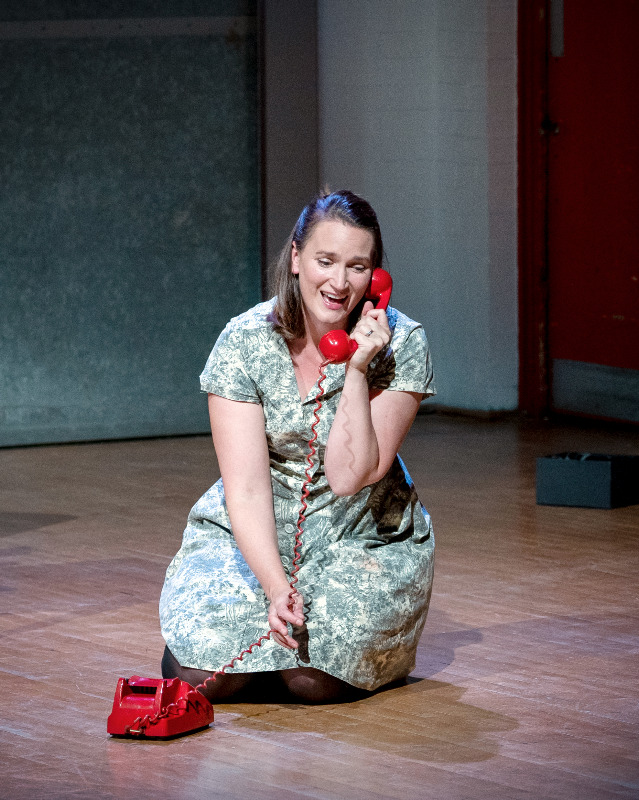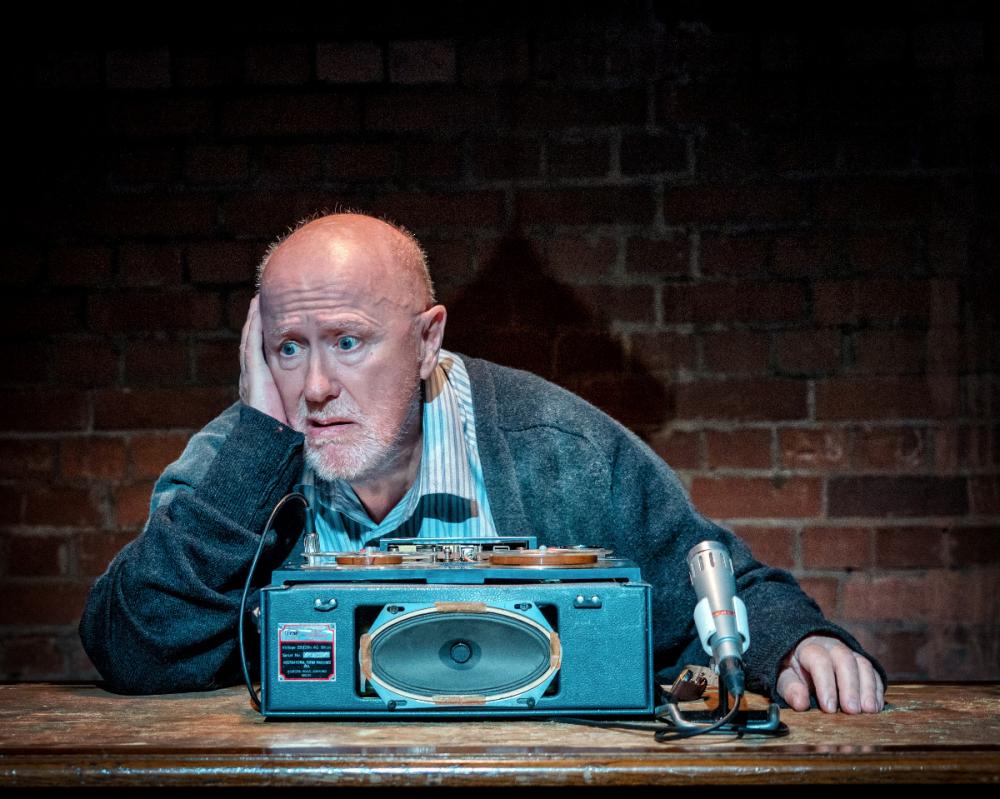
Connecting Voices, Opera North and Leeds Playhouse, at Leeds Playhouse, October 17
COLLABORATIONS between Opera North and Leeds Playhouse in recent years have been proving increasingly fruitful.
This latest, a four-show programme in different locations throughout the Playhouse, was just what the doctor ordered: its umbrella title Connecting Voices homed in on the social interactions we have all been craving.
It was designed to “examine the power and expression of the solo voice” and ranged the gamut from pure opera to straight theatre.
Poulenc’s monodrama La Voix Humaine, in the Barber Studio, led the way. In Sameena Husain’s production, Gillene Butterfield poured her heart and voice into Elle’s desperate efforts to repair her faltering romance, using telephones from three different eras.
Plus ça change! She might as well have been on Zoom, so vivid were her emotions, made more so by superb diction and – a rarity among sopranos in my experience – beautifully differentiated vowels.
Annette Saunders’ piano was ideally attuned, blasting out jagged darts whenever Elle listened, calm when she spoke. The two of them combined to notable effect in the nostalgic waltz that follows Elle’s highest outburst.

Opera North was involved in two of the remaining items. Under its Resonance programme for Black and Asian musicians, Reflections: Dead And Wake explored the Caribbean funerary tradition of Nine-Nights from a specifically Jamaican perspective.
Alongside ethnic choruses, sounding perhaps more African than Caribbean, Paulette Morris caressed her solo songs lovingly. The recurring soundscape of Jamaican voices by the director Khadijah Ibrahiim was not especially intelligible, but certainly added atmosphere.
Among similar non-native sounds was the powerful contribution of the rapper Testament (aka Andy Brooks), in the title role of Orpheus In The Record Shop, injecting much sardonic humour while doubling as composer and writer.
Aletta Collins’ production gradually introduced eight members of the Opera North orchestra and the excellent wordless mezzo of Helen Évora, to bring an optimistic conclusion as bankruptcy loomed. Definitely a tale for our times.
The other riveting voice was that of Niall Buggy, raging and cackling against the dying of the light and his own misspent years in Samuel Beckett’s Krapp’s Last Tape, directed by Dominic Hill. Like the Poulenc, it was written in 1958.
These days, theatre staff are front-line workers too. The small army of stewards here, totally tuned in and extremely helpful, deserve a final word of thanks.
Review by Martin Dreyer
